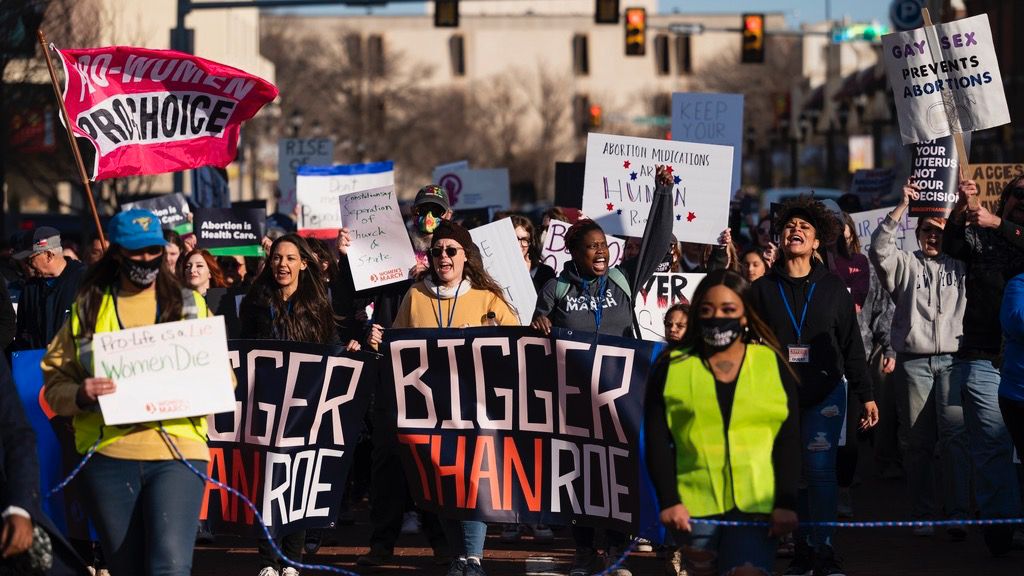AUSTIN, Texas — A new study is estimating that nearly 65,000 survivors of rape in states with abortion bans have become pregnant since the U.S. Supreme Court overturned Roe v. Wade in 2022.
The study, which was published in the peer-viewed Journal of the American Medical Association (JAMA), looked at 14 states that have outlawed abortion and took data from the Centers for Disease Control and Prevention (CDC), the FBI and the Bureau of Justice Statstics (BJS) to estimate the amount of rapes and rape-related pregnancies that occurred in those states from July 1, 2022, to Jan. 1, 2024.
The states the study looked at were Alabama, Arkansas, Idaho, Indiana, Kentucky, Louisiana, Mississippi, Missouri, North Dakota, Oklahoma, South Dakota, Tennessee, Texas and West Virginia.
In total, the study estimates that 519,981 rapes occurred in those 14 states and 64,565 of them resulted in pregnancy. Researchers further estimated that 9% of those pregnancies occurred in states with legal exceptions for rape, while 91% of them occurred in states with no exceptions.
Texas, a state which has no exceptions for rape or incest, was at the top of the list with an estimated 26,313 rape-related pregnancies, over four times more than the next closest state, Missouri, at 5,825.
Democrats in Texas have responded to these findings, with Texas state Sen. Roland Gutierrez saying politicians should not be involved in the decisions women make for their health.
“No woman anywhere should be forced to birth her rapists’ baby. No child anywhere should be forced to birth her rapists’ baby,” Gutierrez said on X, formerly Twitter. “Politicians and unelected judges should stay the hell out of women’s healthcare decisions.”
The researchers confessed there were limitations with formulating their estimates saying that the national data on rapes they used, while the most accurate available, can not get the full picture.
“Such highly stigmatized experiences are difficult to measure accurately in surveys,” the study said.
Nonetheless, the study concluded that the large number of estimated rape-related pregnancies in states with total abortion bans indicates that “persons who have been raped and become pregnant cannot access legal abortions in their home state, even in states with rape exceptions.”
In states with exceptions for rape, on average, 10 or fewer legal abortions occurred every month. Survivors must report their rape to law enforcement in order to get an abortion in these states, but the BJS estimates only 21% do so.
“Thousands of girls and women in states that banned abortion experienced rape-related pregnancy, but few (if any) obtained in-state abortions legally, suggesting that rape exceptions fail to provide reasonable access to abortion for survivors,” the study said. “Survivors of rape who become pregnant in states with abortion bans may seek a self-managed abortion or try to travel (often hundreds of miles) to a state where abortion is legal, leaving many without a practical alternative to carrying the pregnancy to term.”



